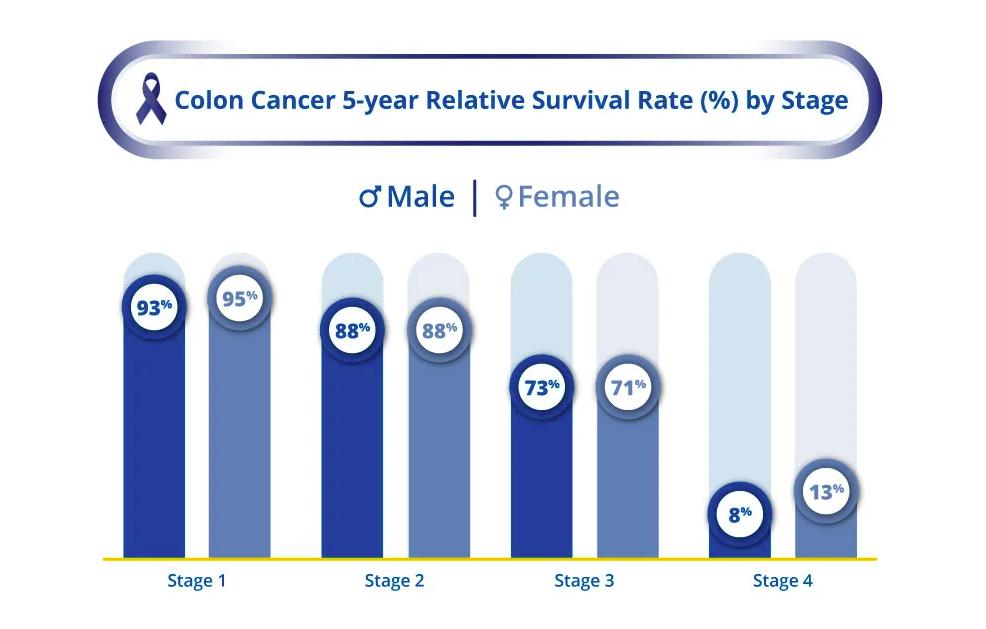Colon cancer is one of the most common cancers worldwide, and unfortunately, it often spreads to other parts of the body if not detected early. Among the most frequent sites of metastasis, the liver stands out due to its direct connection with the colon through blood flow. When colon cancer spread to liver occurs, it significantly impacts treatment decisions, prognosis, and overall survival rates.
Understanding how colon cancer metastasizes to the liver, the symptoms to watch for, and the available treatment options is crucial for both patients and caregivers. This article explores the causes, risk factors, diagnosis, and treatments of colon cancer that has spread to the liver while also highlighting the latest research and supportive care strategies.
Definition and Overview
When colon cancer spread to liver occurs, it means that cancer cells from the colon have traveled through the bloodstream and formed secondary tumors in the liver. This stage is referred to as metastatic colorectal cancer (mCRC). The liver is the most common site of colon cancer metastasis because of its role in filtering blood from the digestive tract.
Metastatic colon cancer to the liver does not mean the patient has liver cancer; rather, it is colon cancer cells growing in the liver. This distinction is important because treatment and management are based on colon cancer protocols, not primary liver cancer treatments.
Types
There are two main categories when colon cancer spreads to the liver:
- Synchronous metastases – when liver metastases are detected at the same time as the primary colon cancer diagnosis.
- Metachronous metastases – when metastases appear months or years after the initial colon cancer diagnosis and treatment.
Causes and Risk Factors
The exact cause of colon cancer spread to liver is linked to the progression of colon cancer itself. Certain factors increase the likelihood of metastasis, including:
- Advanced stage of colon cancer at diagnosis
- Genetic mutations such as KRAS, NRAS, or BRAF
- Family history of colorectal cancer
- Inflammatory bowel diseases (Crohn’s disease, ulcerative colitis)
- Poor dietary habits and sedentary lifestyle
- Smoking and excessive alcohol consumption
Symptoms and Early Warning Signs
In many cases, colon cancer that has spread to the liver does not show symptoms in the early stages. As it progresses, common signs may include:
- Persistent abdominal pain or discomfort on the right side
- Unexplained weight loss
- Fatigue and weakness
- Jaundice (yellowing of skin and eyes)
- Loss of appetite
- Enlarged liver or feeling of fullness under the ribs
Recognizing these symptoms early is crucial for timely diagnosis and treatment.
Diagnosis
Diagnosing colon cancer spread to liver involves multiple tests, including:
- Blood tests (including liver function tests and tumor markers such as CEA)
- Imaging tests such as CT scans, MRI, or PET scans
- Biopsy of liver lesions to confirm that the tumors are metastatic colon cancer cells
Accurate staging is essential to determine the extent of spread and to plan treatment.
Treatment Options
Treatment for colon cancer spread to liver depends on the number, size, and location of liver tumors, as well as overall patient health. Common options include:
- Surgery (hepatic resection): Removal of liver tumors when feasible.
- Ablation therapies: Radiofrequency ablation (RFA) or microwave ablation to destroy cancer cells.
- Chemotherapy: Systemic or targeted drug therapy to shrink or control tumors.
- Targeted therapy: Medications such as bevacizumab or cetuximab that attack specific cancer pathways.
- Immunotherapy: In selected cases with specific genetic mutations.
- Radiation therapy: Less common but used in specific scenarios like stereotactic body radiation therapy (SBRT).
Prevention and Lifestyle Recommendations
While not all cases of colon cancer spread to liver can be prevented, risk reduction strategies include:
- Regular colorectal cancer screening (colonoscopy)
- Maintaining a healthy diet rich in fiber, fruits, and vegetables
- Exercising regularly
- Avoiding smoking and limiting alcohol consumption
- Managing chronic conditions like diabetes and obesity
Prognosis and Survival Rates
The prognosis for colon cancer spread to liver varies depending on how advanced the metastasis is and whether surgery is possible. Patients who undergo successful liver resection may have a 5-year survival rate of 40–60%. Without surgery, survival rates are lower, but advances in systemic therapies have improved outcomes. Early detection and multidisciplinary treatment are key factors in survival.
Latest Research and Innovations
Research continues to explore new therapies for colon cancer that has spread to the liver. Promising areas include:
- Precision medicine using genetic profiling to guide treatment
- Improved surgical techniques and minimally invasive liver surgery
- Novel immunotherapies targeting tumor-specific pathways
- Clinical trials exploring drug combinations for resistant tumors
Coping and Support for Patients
A diagnosis of colon cancer spread to liver can be overwhelming for patients and families. Emotional, psychological, and practical support is essential. Support groups, counseling, nutritional guidance, and palliative care services can help improve quality of life during treatment. Caregivers also play a vital role in providing physical and emotional support.
Conclusion
Colon cancer spread to liver is a serious but increasingly manageable condition thanks to medical advances. Understanding risk factors, recognizing symptoms, and pursuing timely treatment can make a significant difference in patient outcomes. With ongoing research and supportive care, many patients are finding new hope and improved quality of life.
FAQ
1. What does it mean when colon cancer spreads to the liver?
It means colon cancer cells have traveled through the bloodstream and formed secondary tumors in the liver, known as liver metastases.
2. Can colon cancer spread to liver be cured?
In some cases, especially if surgery is possible, liver metastases can be removed and long-term remission achieved. However, many cases require ongoing treatment.
3. What is the life expectancy of colon cancer that has spread to the liver?
Life expectancy varies, but patients who undergo surgery may live many years. Without surgery, systemic therapies can still extend survival and improve quality of life.
4. How is colon cancer spread to liver diagnosed?
Through blood tests, imaging scans, and biopsy to confirm that liver tumors are metastatic colon cancer.
5. What are the latest treatments available?
Targeted therapies, immunotherapies, and advanced surgical and radiation techniques are among the latest options being used.


